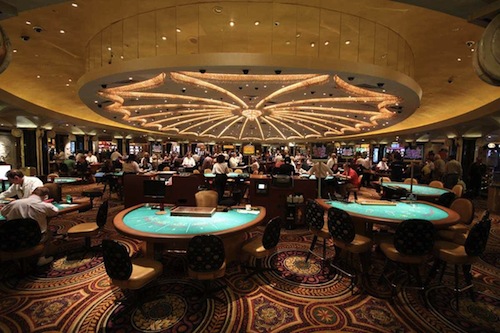
Casino experiences have enthralled players over the ages, transforming from basic recreational activities to complex experiences that combine chance, strategy, and entertainment. From the historical origins of gambling in civilizations such as ancient Mesopotamia and Rome to the extravagant corridors of modern casinos, the journey of these games shows much about our nature and our relationship with luck. As cultures have merged and innovation has progressed, casino games have changed, illustrating shifts in society and innovations in gameplay.
The primitive versions of gambling likely involved basic dice-based games and betting on the outcomes of sporting events. Over time, these primitive activities grew into better-organized games like table games, the game of roulette, and the variety of one-armed bandits that fill the premises of casinos today. Every generation brought its unique rules, aesthetics, and social relevance. Today, casino games maintain their evolution with the rise of internet-based platforms, enabling players from everywhere to join in a shared experience, further blending the traditional with the modern era.
Early Origins of Gaming Activities
Gaming games have roots that reach back to old societies, where betting was strongly integrated in social practices and cultural customs. The first known forms of gambling appeared in ancient Mesopotamia around three thousand BC, featuring simple dice games made from knuckle material. These initial games laid the groundwork for more advanced betting games, reflecting human beings’ instinctive urge to seek fortune and amusement through luck.
As civilizations evolved, so did their betting interests. In early Chinese culture, around two thousand three hundred BC, objects were unearthed that looked like early basic versions of a lottery game. More organized forms of gambling developed in the ancient Roman Empire, where activities of chance were a frequent recreation, often occurring in community gatherings. The Romans developed different wagering games, which entailed dice and board games, highlighting the pervasive nature of gambling across various social classes.
With the flow of years, these early games shaped the development of modern casino activities. In the Middle Ages, playing card activities grew prevalent in Europe, paving the way for the organized gambling venues we know today. The shift from informal betting to formal gaming in pubs and personal homes marked a significant transformation in how people interacted with activities of luck, leading to the eventual creation of casinos as dedicated venues for betting.
The Growth of Modern Gambling Industry
The late 1960s and 1970s marked a crucial shift in the world of gaming, driven by technological progress and changes in societal views towards gambling. The introduction of personal computers and the World Wide Web altered the way players engaged with their favorite casino games. Online casinos emerged, enabling gamers to enjoy classic table games like Texas Hold’em and blackjack from the convenience of their houses. This emerging online environment not only expanded availability to casino games but also drew in a newer crowd who found the convenience and diversity appealing.
As digital gambling gained momentum, so did advancements in casino tech. The advancement of advanced software and visual elements transformed classic gambling games into immersive experiences. Players could now connect with realistic live dealers through real-time broadcasts, importing the atmosphere of physical casinos directly into their living rooms. This fusion of in-person play with digital interfaces created a novel combination that enhanced the social aspect of gambling, making it possible for individuals to engage and compete with fellow gamers around the globe.
Moreover, the emergence of gaming on mobile devices significantly changed the gambling environment. With the widespread use of smartphones and touch devices, players can play their preferred gaming options at any location, whenever. Mobile applications offer a wide selection of options optimized for mobile screens, serving the fast-paced daily life of contemporary gamers. This easy access has resulted in growing involvement in casino games, contributing to the exponential growth of the gaming industry. As a result, the prospects of the gaming industry continues to develop, adapting to new technologies and changing player expectations.
How Technology Influences Casino Games
The evolution of technology has greatly changed casino games, enhancing the overall experience for players for gamblers globally. With the introduction of the internet, online casinos were created, allowing players to enjoy their favorite games from the comfort of their homes. This shift not only made casino games more available but also increased the variety of games available, as online platforms could offer many different versions of traditional games without the limitations of brick-and-mortar establishments.
The rise of mobile technology further transformed the casino gaming landscape. With the proliferation, players now have the ability to play casino games anytime and anywhere. This mobility has resulted in the development of dedicated mobile applications and optimized websites that provide seamless gaming experiences. Additionally, innovations such as live dealer games have brought the authentic atmosphere of a casino into players’ living rooms, connecting between physical and online gaming.
Furthermore, advancements in AI and VR are paving the way for the next generation of casino games. AI enhances game design and player interaction, creating customized experiences based on user behavior and preferences. Meanwhile, virtual reality offers immersive environments where players can interact in a simulated casino setting, making the gaming experience more engaging and realistic. As technology continues to evolve, the future of casino games seems bright, filled with endless possibilities for advancements and entertainment. PG SLOT
